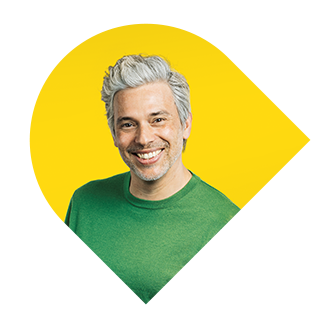Interview with Yann Bresson and Marie Leclerc from Orange to understand how to bring a culture change to the next step.
In this newsletter, we talked with Yann Bresson, Head of Transformation Programs at Orange Campus Management, and Marie Leclerc, Learning & Development Manager, both responsible for the Organizational Agility Advisors (or “Référents en Agilité Organisationnelle”) training program, in place at Orange for almost two years.
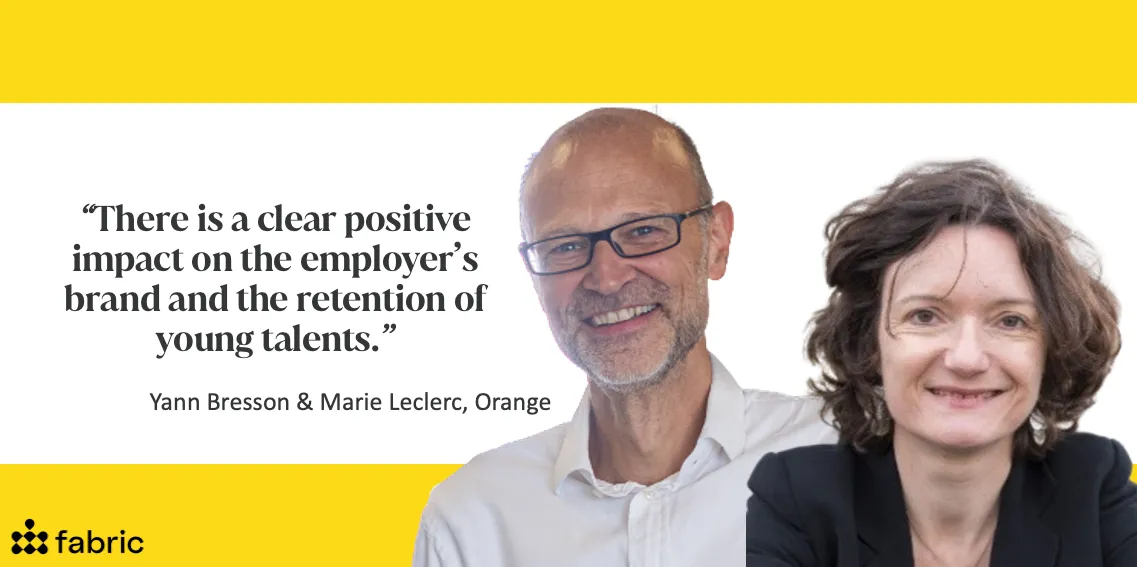
The program is an answer to one of the major challenges for Orange today: how to deploy and maintain a culture of Agility, autonomy and sharing. This program has enabled Orange to train three dozen Organizational Agility Advisors and to reach hundreds of teams. They are going to share with us the origin of this program, the risks inherent in this change of culture, and of course the outcomes – both expected and unexpected!
Tell us in a few words what you have implemented?
We decided to set up a training program on the subject of organizational agility in order to upskill in-house managers and coaches who are present in many entities. They are now capable of accompanying Adaptive Governance* inspired approaches and can ensure follow-up. We launched this program in 2020 and today we are training the third wave. In total 30 people spread across the most dynamic divisions of Orange have gone through the program.
*Adaptive Governance: Adaptive Governance is a new form of work organization that promotes collective intelligence to serve the purpose of a department or project. It allows for a self-regulating and adaptive organization based on roles and promotes accelerated decision-making in uncertain and complex environments. (Adaptive Governance, Pearson Editions, 2021)
Why did you choose to launch this project?
Orange has the challenging objective of spreading a culture of agility in its teams. But to develop and anchor this culture, it is crucial that the entities themselves become actors of the change, they are ultimately the ones who are really legitimate to do this.
Unfortunately, Orange Campus Management does not have the internal resources to support all these teams in their day to day activities. So instead of having people do this on their own with little to no knowledge, we decided to train key actors. The goal is to give them the skills to allow them to set up a support program and to give them all the keys to implement Adaptive Governance as they see fit. Of course, Orange Campus Management remains in a support role to help them.
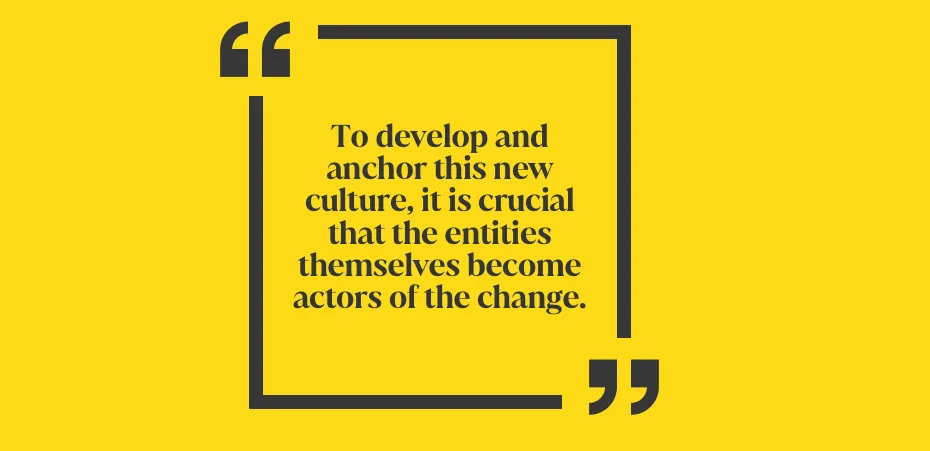
To be able to scale up and have a real impact, it was really necessary not to depend entirely on external consultants and to use internal skills. Today, out of our 8,000 managers in France, we have around 1600 who practice Adaptive Governance or rituals inspired by it. This is a ratio that is starting to be very interesting and represents a real turning point in our culture. All the more so as managers are spreading these practices and mindsets to their new teams.
In your opinion, what are the key ingredients of the training approach?
In addition to mastering the methods, we also train them on how to qualify a team’s needs. For me, that’s what makes this particular coaching approach so powerful. We work a lot on their mindset and what is at stake as a facilitator beyond the tools, we insist a lot in the curriculum on seeing oneself as an instrument of change.
The training is also very immersive, with a lot of sharing and workshops. Participant certification at the end of the program is also collective: each participant presents a change project to the other participants and offers a self-reflection on their work, before receiving feedback from their peers.
How do you adapt the content to each class? How is the community of learners built?
Over the three classes, we have noticed differences in maturity depending on the level of expertise. Each time, we adapt by offering more or less advanced content on facilitation or by adopting a higher level of perspective.
Within the classes and between modules, participants form pairs and work on common coaching topics: this inevitably creates bonds! To strengthen the community, we also offer moments of conviviality at the beginning and end of each class. We encourage the sharing of each other’s initiatives, the sharing of facilitation methodologies and other tools (such as mindfulness meditation).
What effects has this program produced?
We still need to interview people more in depth to get business impact feedback. But amongst other things, we know that there is an impact on the employer brand and the retention of young talents. For example, a few years ago, we had two IT departments with a high average age of employees and recruiting difficulties. Three years later, one of the departments has not changed, while the other has a lower average age and no difficulty in recruiting – and that department operates under Adaptive Governance! This is really the mindset of the younger generations: sharing, responsibility, autonomy.
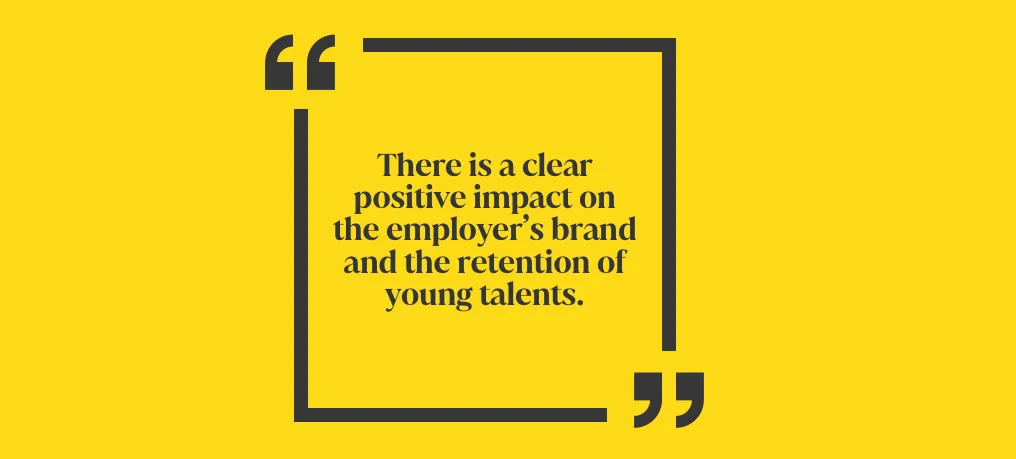
On an individual and managerial level, the agility mindset has revolutionized the role of the manager: some feel helpless, asking themselves “what am I good for?”. They are having to let go of “command and control” decision making and move towards a role of managerial support. Luckily some managers have rediscovered themselves and blossomed. They have found new energy, a new meaning to their job. This change of culture has allowed many to rediscover their management style and has given them the desire to spread these new practices.
This program plays a key role because it allows us to fluidify team functioning in a seamless manner, without Orange Campus Management’s input which does not have the resources to be everywhere on a daily basis. The impact is always nuanced, of course, because it depends on the number of people trained in the entity in question, and the number of people who have already switched to the right side of the Force! (laughs)
In terms of impact on the participants of the course, we feel that these people are more legitimate and more confident in their ecosystem, they take initiatives more easily in their teams, in their environments. The training includes a lot of co-development and generally generates an awareness of the value of cross-fertilization. They also come to us more easily, they dare to ask for advice and use the resources we offer!
In your opinion, what is the specificity of Fabric on such projects?
Before meeting Fabric, we talked with other firms, and some were talking about holacracy, but I was not interested in its dogmatic and rigid side! We need the balance between human and practical, and we found it with Fabric and the incredible people on the team.
On this type of project, in addition to the tools of Adaptive Governance, Fabric has the ability to combine soft skills and methodology, which is what creates the power of the course. The tools are only there to reveal the culture, the people have to feel good for it to really work!
With Fabric, we agree that transformation begins with oneself. They listen to your needs, they don’t just stick to “what they have in store”, that’s very precious; we challenge each other to progress, we don’t rest on our laurels. RAO is the illustration of this, we adapt each time, we improve!
If someone wanted to launch a similar project, what advice would you give them?
It is important to ask the right questions:
is the intention right, what is the value created? What is the impact of the project?
You have to think about the long term, how to capitalize on this investment, and this requires a community spirit among the graduates.
This type of training program also requires vigilance. We believe that this is only a first step, and that there are other facets to discover afterwards. And we remain flexible and pragmatic: there are things that are anchored and even if it’s not 100% perfect, it’s not a big deal, it’s integrated into the culture via the language, it allows us to reach out to people even if we need to adjust a little bit afterward.
Regarding the process itself, during the recruitment phase, we make sure that each person is aligned with the mindset, has the bandwidth and the mandate of their management during and afterwards to put it into practice. The selection of people is a very important step, because if the management is in opposition, it doesn’t work in the long term. There is a risk of putting people in difficulty in the program if they are not recognized and accepted – which we want to avoid.
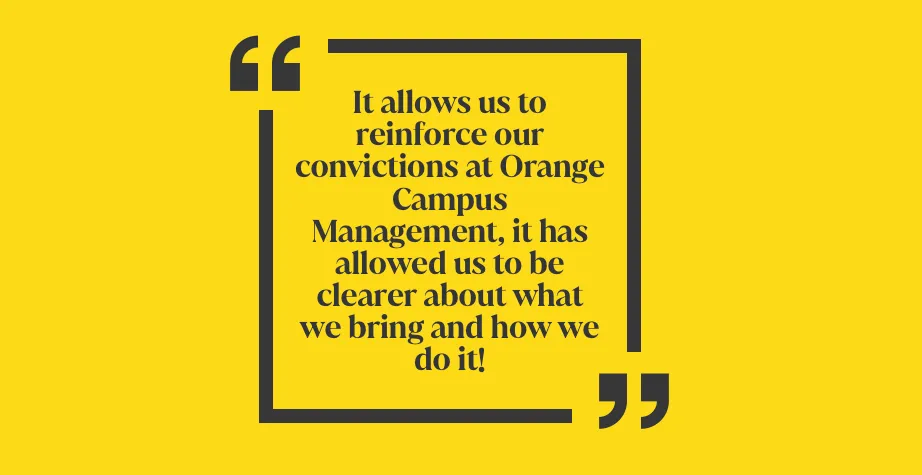
We also make sure that the participants are convinced and have the necessary background because the training already requires a foundation to understand its added value. It is a long learning process and complex at the beginning!
Finally, this kind of course has unexpected secondary benefits: as we are training those participants, we are being challenged by them, and it allows us to reinforce our convictions at Orange Campus Management, it has allowed us to be clearer about what we bring and how we do it!
If you want to talk about building together a training program tailored for your company, Let’s explore the possibilities together! Contact us
